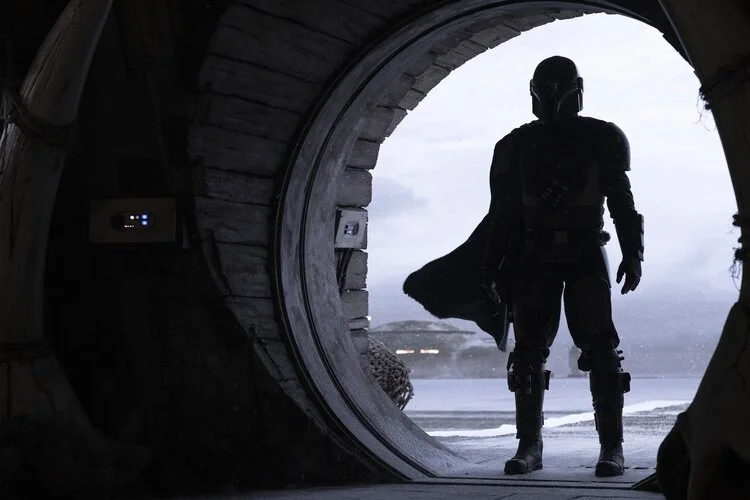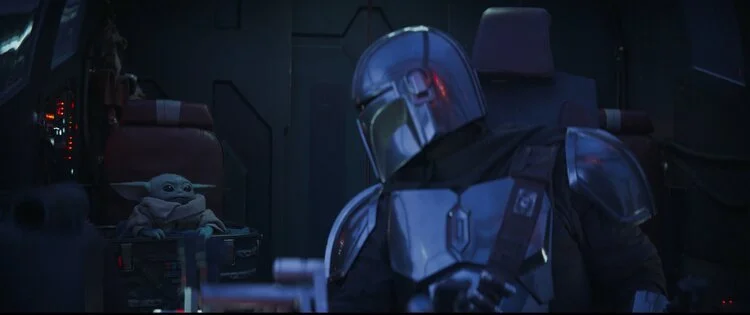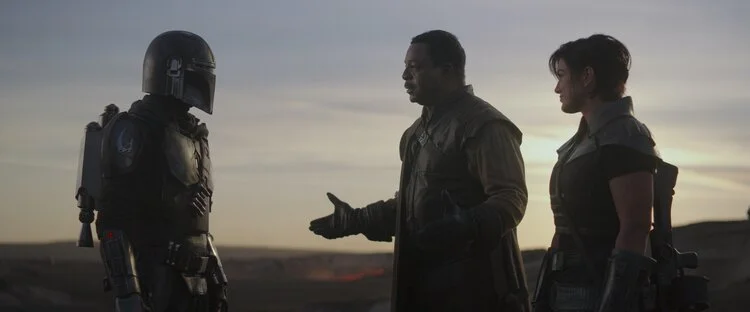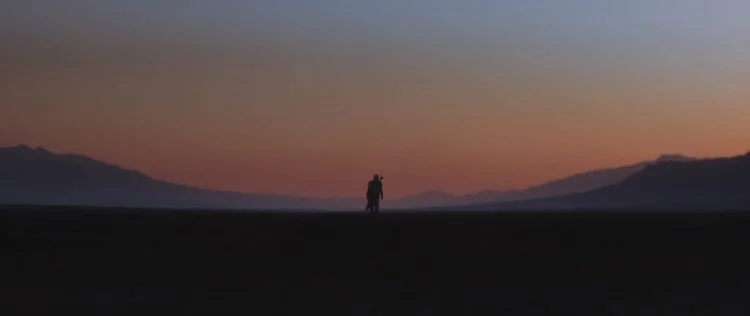Why The Mandalorian Matters (and it’s not because of Baby Yoda)
The Mandalorian (Pedro Pascal) in Lucasfilm’s THE MANDALORIAN. François Duhamel © 2018 Lucasfilm Ltd.™. All Rights Reserved.
This article was originally written for Sainte Magazine.
WARNING: This article contains spoilers for The Mandalorian, Season 1.
This is a chaotic time for Star Wars. The premiere of the final film in the Skywalker saga, The Rise of Skywalker, last week catapulted fans and critics into discourse not seen since… well, the release of The Last Jedi two years ago. For a series that means so much to so many, a story that seems to have embedded itself into the culture of generations of people, this is practically unavoidable. Folks get passionate about Star Wars.
But this isn’t just about liking or disliking the movie. This is about Kelly Marie Tran getting bullied off of social media following her debut in The Last Jedi and then only getting one minute and sixteen seconds of screen time, this is about reports of last-minute edits to completely change the ending of the film, this is about a love story between Poe Dameron (Oscar Isaac) and Finn (John Boyega) that was clearly there but never came to be. This is important, and these things are worth talking about, yelling about even, because it shows that the part of this fanbase that is cruel and vindictive gets to win. Despite the story’s constant themes of love, friendship, and hope, the filmmakers have bowed to bullies to create something that says, above all: we are ruled by fear.
This is why The Mandalorian matters.
The first live-action episodic Star Wars story made for television, The Mandalorian premiered with the launch of Disney+ on November 12. Highly anticipated, the show received rave reviews from critics and fans alike, and people came back week after week to watch -- a triumph in a time when being able to binge shows immediately following their debut reigns supreme. When Baby Yoda (Baby Djarin now that "Din Djarin" has been confirmed as Mando’s real name and Emily Swallow’s The Armorer has officially declared him daddy to The Child?) showed up at the end of “Chapter 1”, we all collectively lost our minds, whether we watched the show or not, and the world hasn’t been the same since.
It was still in the midst of its eight episode run when The Rise of Skywalker premiered (the release of “Chapter 7: The Reckoning” was pushed forward two days so it wouldn’t collide with TROS), so it felt perhaps more powerful when the final episode, “Chapter 8: Redemption” premiered exactly one week after the film. It came like a breath of fresh air.
The Child and the Mandalorian (Pedro Pascal) in THE MANDALORIAN. Courtesy of Disney+.
What makes this show a true success in the world of Star Wars, is not what makes it critically great. Cinematography, set design, costuming and special effects are all outstanding and most certainly deserve praise, but to make a memorable, lasting Star Wars story, you need more than just what makes it technically beautiful.
This is why The Mandalorian matters.
What The Mandalorian does, what the sequel trilogy should have done, is utilize new perspectives of an already established universe. All nine Star Wars films are written and directed by white men (the first draft of Empire Strikes Back was written by a woman named Leigh Brackett, but she died before it was completed. George Lucas revised her draft and engaged Lawrence Kasdan to finish it. And although she is still credited as a screenwriter, none of her ideas made it into the final cut), and that is a major contributing factor to the failures of the sequel trilogy. Introducing diverse lead characters for the sake of inclusivity is not all it takes to create a captivating story. While creator Jon Favreau is credited with writing seven of the eight episodes, five different directors were used. Among them were Dave Filoni (who directed two episodes, including “Chapter 5: The Gunslinger” which he co-wrote with Jon Favreau, and was at the helm for Star Wars Rebels and The Clone Wars), Deborah Chow (directed two episodes and is showrunner for the currently untitled Obi Wan-Kenobi series), Rick Famuyiwa (directed two episodes), Bryce Dallas Howard, and Taika Waititi. Telling this story from the perspective of people of color and women is crucial in making it a story apart from everything that has come before it.
This is why The Mandalorian matters.
Pedro Pascal is The Mandalorian, Carl Weathers is Greef Karga and Gina Carano is Cara Dune in THE MANDALORIAN. Courtesy of Disney+.
This show is an undeniably Star Wars adventure, while remaining a brand new story. There are certainly hints at and nods to other parts of the Star Wars universe. But instead of the tale of good versus evil heavy with archetypal tropes, we are given a story of people in the aftermath of war. We are introduced to Bounty Hunter’s Guild members like Greef Karga (Carl Weathers) trying to make money; the ex-shock trooper now-mercenary Alderaanian Cara Dune (Gina Carano) trying to put her military days behind her, weighed down by hatred of the Empire; Kuiil the Ugnaught (Nick Nolte) who had worked a lifetime in indentured servitude to the Empire.
And of course, Din Djarin (Pedro Pascal), the Mandalorian bounty hunter whose past, and face, are shrouded in mystery for almost the entirety of the season. He seems to be in support of no one in particular. He doesn’t like the Empire, but agrees to take on a bounty (enter: Baby Yoda, who we know nothing about aside from the fact that he has The Force, likes to eat frogs, and is the cutest thing to ever live) at the request of The Client (Werner Herzog), who is very obviously with the Empire. When Greef Karga tells him he can report The Client and his stormtroopers to the New Republic, Din scoffs and says, through an always-on voice modulator, “That’s a joke.” His only true commitment is to The Way, the code of the Mandalorians.
Din's story isn't just the one of a Warrior, a Hero, or a Villian. We are constantly pushed and pulled with him on his journey this season, where everything isn't so much a matter of destiny as a matter of choice, the words of his creed, his oath, threading through every decision he makes.
These characters and their stories lead us to the seedier, messier, less black-and-white side of Star Wars. The more human side, even if they’re not all actually human.
This is why The Mandalorian matters.
Influenced by more than just White Male voices, this show pulls itself out of the trap of nostalgia that the new trilogy could never seem to let go of and it makes me hopeful. Hopeful in the way that Star Wars has always told me to be, but this time I truly feel it. The destiny of these characters might not be to save the whole galaxy, but they, for me, are saving Star Wars, and I am grateful.
This is the way.
The Mandalorian (Pedro Pascal) in Lucasfilm’s THE MANDALORIAN. © 2019 Lucasfilm Ltd.™. All Rights Reserved.



